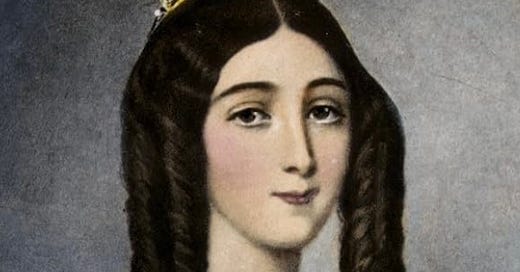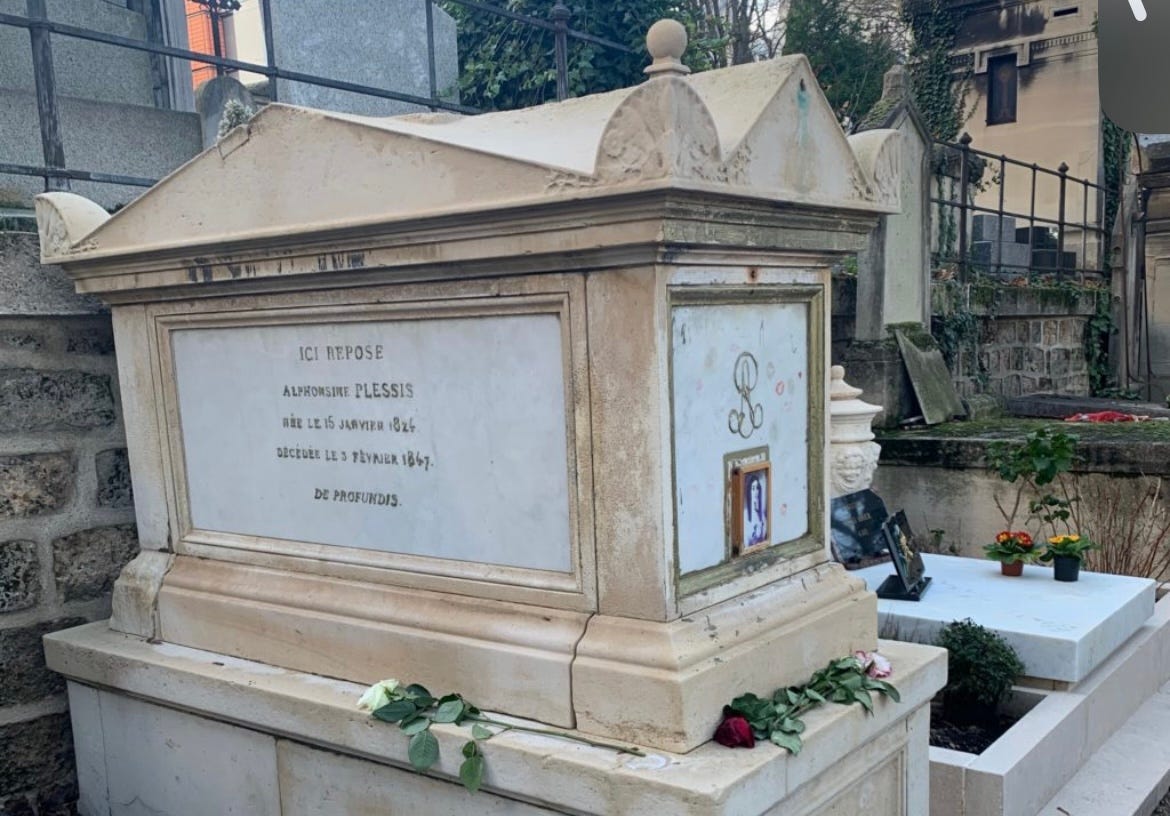HAPPY 200th BIRTHDAY, Alexandre Dumas fils: Comment on Marie Duplessis
July 27, 2024 commemoration/celebration
HAPPY 200th BIRTHDAY, Alexandre Dumas fils!!!
Since Dumas gives such a detailed - AND macabre - description of the cemetery - here are a few facts about Cemetery of Montmartre (Cimetière de Montmartre), the third largest Parisian necropolis - after Père Lachaise and Montparnasse Cemetery. I’ve visited all three - and Montmartre Cemetery is my favorite - Stendhal and Berlioz are buried here - AND today’s birthday boy, Alexandre Dumas fils - AND the woman who inspired The Lady of the Camellias!!!
Marie Duplessis (1824-1847), born Alphonsine Rose Plessis, the famous Parisian contestant, was Dumas fils’ lover. After she died of consumption at 23, Dumas immortalised her as Marguerite Gautier - portraying himself as Armand Duval…
Dumas’ description of the cemetery is incredibly accurate - yes, it is a city of the dead, with alleys and street signs, and yes, the grave of Marie Duplessis is still there - pictured below - a few minutes of walking from the grave of the author who preserved her memory for posterity… I will post the image of Alexandre Dumas fils’ grave tomorrow… A comment on camellias next!!!
Another stunning passage from Chapter 3 of The Lady of the Camellias:
“Why do we make ourselves more strict than Christ? Why, holding obstinately to the opinions of the world, which hardens itself in order that it may be thought strong, do we reject, as it rejects, souls bleeding at wounds by which, like a sick man’s bad blood, the evil of their past may be healed, if only a friendly hand is stretched out to lave them and set them in the convalescence of the heart?
It is to my own generation that I speak, to those for whom the theories of M. de Voltaire happily exist no longer, to those who, like myself, realize that humanity, for these last fifteen years, has been in one of its most audacious moments of expansion. The science of good and evil is acquired forever; faith is refashioned, respect for sacred things has returned to us, and if the world has not all at once become good, it has at least become better. The efforts of every intelligent man tend in the same direction, and every strong will is harnessed to the same principle: Be good, be young, be true! Evil is nothing but vanity, let us have the pride of good, and above all let us never despair. Do not let us despise the woman who is neither mother, sister, maid, nor wife. Do not let us limit esteem to the family nor indulgence to egoism. Since “there is more joy in heaven over one sinner that repenteth than over ninety and nine just persons that need no repentance,” let us give joy to heaven. Heaven will render it back to us with usury. Let us leave on our way the alms of pardon for those whom earthly desires have driven astray, whom a divine hope shall perhaps save, and, as old women say when they offer you some homely remedy of their own, if it does no good it will do no harm.
Doubtless it must seem a bold thing to attempt to deduce these grand results out of the meagre subject that I deal with; but I am one of those who believe that all is in little. The child is small, and he includes the man; the brain is narrow, and it harbours thought; the eye is but a point, and it covers leagues.”








